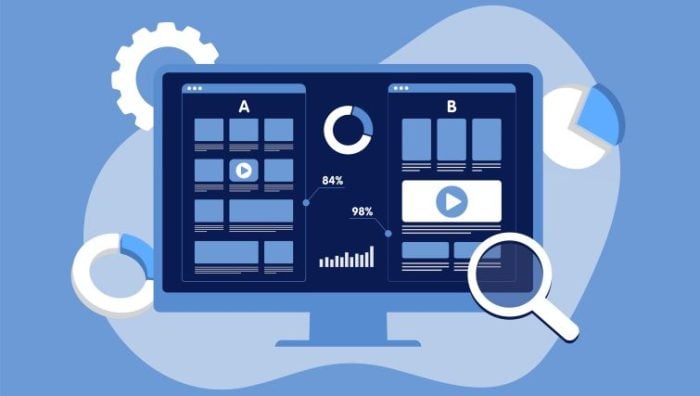Why Technical Screening Is Important For IT Hiring
 Publié le 19 June 2023
Publié le 19 June 2023
Learn why technical technical screening is important for IT hiring, and how implementing can help you find the best employees.
When you’re looking to expand your tech skill set of your organization by hiring IT employees, your priority is to recruit those with the leading technical skills.
A standard Zoom interview won’t cut it as part of the hiring process for tech candidates.
Enter technical screening.
Typically conducted by recruiters, hiring managers, or technical experts during the interview process, a technical screening is essentially a test that assesses a candidate’s proficiency in specific areas relevant to the technical job role. This may include demonstrating an understanding of the differences between VNC®Connect vs TeamViewer or programming specific languages such as C++ or Python.
Implementing technical screening into your interview processes will help you find the most qualified applicants and level up your business’s tech force.
What is Technical Screening?
To understand why technical screening is important for IT hiring, you need to understand the various ways you can conduct it. Technical screening can involve different test methods, including:
- Written tests
- Coding exercises
- Technical interviews
- Practical skills demonstrations
Technical screening is commonly used in fields such as information technology, software development, engineering, and data science, where specific technical skills and expertise are critical to job performance.
According to one IT recruiter, technical interviews should last around 30 minutes and no longer than an hour. However, the type of technical test will determine roughly how long it takes. With that in mind, let’s look at the different methods of technical screening.
Technical Interviews
These are typically one-on-one interviews conducted by experienced technical interviewers. Technical interviews may include coding exercises, whiteboarding sessions, system design discussions, or problem-solving tasks.
For instance, say you’re recruiting for a remote junior developer role. During the hiring call, you may ask the candidate remote job interview questions or to perform specific tasks, such as:
- Writing a function in JavaScript to reverse a string without using any built-in methods.
- Explaining the concept of callback functions in JavaScript and providing an example of how you would use one.
- Explaining what a SAN is and how it is used.
- Detailing the purpose of the ‘this’ keyword in JavaScript and how it works.
- Given an array of numbers, writing a function in JavaScript to find the sum of all even numbers in the array.
- Explaining what closures are in JavaScript and how they work, along with examples.
- Explaining the concept of promises in JavaScript and how they are used for handling asynchronous operations.
- Writing a simple JavaScript program to check whether a given number is a prime number.
- Reviewing the role of continuous integration systems in the automated-build process.
Why do technical interviews work? Technical interviews provide a direct and focused way to assess a candidate’s technical skills, knowledge, and problem-solving abilities. Interviewers can gauge a candidate’s ability to apply technical concepts to real-world scenarios, which is essential when determining their suitability for the job.
Coding Assessments
These are tests that assess a candidate’s coding skills. You may ask candidates to complete coding challenges or projects within a specified timeframe, either online using software or on-site to demonstrate their technical proficiency.
Why do coding assessments work? This technical screening process provides a direct and objective way to evaluate a candidate’s coding skills, including their ability to write efficient, clean, and effective code. They also allow candidates to showcase their skills in applying coding concepts to real-world situations.
Code Reviews
These tests involve evaluating a candidate’s past code samples, projects, or open-source contributions. The aim is to assess their coding style, best practices, and overall technical competency.
Why do code reviews work? Reviewing code helps to gain insights into a candidate’s coding style, problem-solving approach, and attention to detail. They’re also beneficial for evaluating how a candidate responds to feedback.
Whether it’s accepting suggestions, defending their choices, or addressing issues, code reviews can provide valuable insights into their communication skills, adaptability, and willingness to learn.
Pair Programming
Pair programming is a collaborative process where two developers write code on one device. During this type of technical screening, you give the candidates a problem or an assignment and let them work it out in real time. You can use the task time to discuss the problem with the candidates to understand their approaches.
Why does pair programming work? Pair programming is an objective hiring process that allows you to witness first-hand how the candidates work. These types of tests are more interactive than standard back-and-forth questions.
Behavioral Assessments
While not strictly technical, behavioral assessments may also be used as a form of technical screening to evaluate a candidate’s soft skills, communication skills, teamwork, and cultural fit within your organization. After all, you can hire the best developer with the most impressive technical skills, but if they’re not a team player, it won’t work out.
Why do behavioral assessments work? It’s vital that your new hire fits well within your business culture, as they’re more likely to thrive and contribute positively to the team.
Benefits of Technical Screening
As well as assessing relevant technical skills, a technical screening process has myriad benefits for employees and companies. Here are just a few benefits…
Improves Hiring Efficiency
The time to hire for the average company is typically between three to six weeks.
This specific metric is valuable to ensure that your candidate experience is positive and your hiring managers are as efficient as possible.
Technical screening allows you to efficiently filter and shortlist candidates based on their technical abilities. It streamlines the hiring process by quickly identifying qualified applicants and moving them forward to the next interview stages, saving both time and resources.
Ensures Professional Hires
Conducting technical screening as part of your talent acquisition strategy demonstrates professionalism and signals to candidates that your company values technical expertise and is committed to hiring quality candidates.
Assures Job Fit
Technical screening assesses a candidate’s technical capabilities specifically related to the job role. This helps ensure that candidates have the right technical skills and expertise they need to achieve job success, while reducing the risk of hiring mismatched candidates.
Additionally, technical screening supports your workforce planning process by ensuring that your organization has the necessary technical skills and expertise to achieve business goals.
Eliminates Unconscious Bias
Unconscious bias can inadvertently influence standard interview processes.
Because technical screening is a standardized and structured process that includes a set of consistent criteria for evaluating candidates, it ensures that all candidates are evaluated objectively and consistently.
Furthermore, technical screening can also play a critical role in strengthening your organization’s data security strategy by ensuring that all new hires are knowledgeable about cybersecurity and privacy best practices, such as Privileged Access Management. This can help reduce the risk of insider threats and unauthorized access to sensitive information.
Technical Interview Tips
The US Bureau of Labor Statistics predicts that overall employment for people in technical roles such as software developers, quality assurance analysts, and testers will increase 25% by 2031. That’s much faster than the average for other occupations.
With this in mind, honing your technical screening process to find the best candidates is essential.
1. Prepare for the Interview
Familiarize yourself with the technical requirements of the role and skills you plan to assess. Review the job description, technical requirements, and any relevant documentation. Prepare a list of technical interview questions, coding exercises, or assessments that align with the job requirements.
2. Ask the Right Questions
Avoid asking leading or biased questions. Instead, ask open-ended questions that allow qualified applicants to demonstrate their knowledge, technical skills, and problem-solving abilities.
Encourage candidates to explain their thought process and approach in detail, and consider incorporating scenarios or case studies that require candidates to use CCaaS or other relevant software to showcase their expertise.
This approach promotes a fair and unbiased assessment of candidates’ capabilities. It provides valuable insights into their skills and suitability for the role while also evaluating their ability to effectively use CCaaS or other technologies in real-world scenarios.
Use “how” and “why” questions, such as “Why did you choose this particular approach?” These are often effective in getting detailed responses from candidates and encourage them to explain their thought process, reasoning, and decision-making.
3. Inform Candidates
Thoroughly preparing candidates for technical screening helps you to attract and retain remote workers and on-site employees who can thrive in any work environment and deliver exceptional results. Giving an empathetic first impression to your potential employees is essential to showing your company’s ethos and encouraging qualified candidates to work with you.
It’s part of your role to help candidates feel comfortable during your hiring process. So, to enable shortlisted candidates to prepare for their technical tests effectively by giving them information about what to expect from the technical screening.
Clearly communicate the format, duration, and expectations beforehand. Inform them about the types of questions or assessments they may face and include specific guidelines or requirements.
Provide candidates with relevant resources such as documentation, coding standards, or sample questions to help them understand the technical requirements of the role and the specific technologies or frameworks used in your organization.
4. Be Aware of Technical Trends
Equip yourself with the latest developments in the relevant technology stack or field to ensure that your technical assessment process aligns with industry standards and best practices.
For example, remote work and hybrid working arrangements have become a significant trend in the IT space, and it’s important that candidates have the necessary tech skills to thrive in a virtual work environment.
Dedicate time for self-learning and upskilling to enhance your technical knowledge and skills. Enroll in online courses, tutorials, and certifications, and experiment with side projects or personal coding exercises to gain hands-on experience with new tools or frameworks.
Conclusion
You should know why technical screening is important for IT hiring because it greatly helps your business to assess candidates’ technical skills, problem-solving abilities, and compatibility with the role and team.
In the field of IT, security is a critical concern. So ensuring candidates possess the necessary skills to handle security-related tasks, such as secure vendor remote access, is crucial.
With the increasing prevalence of remote work and the fast-paced nature of the IT industry, staying vigilant with technical screening is essential for organizations and IT professionals alike.







